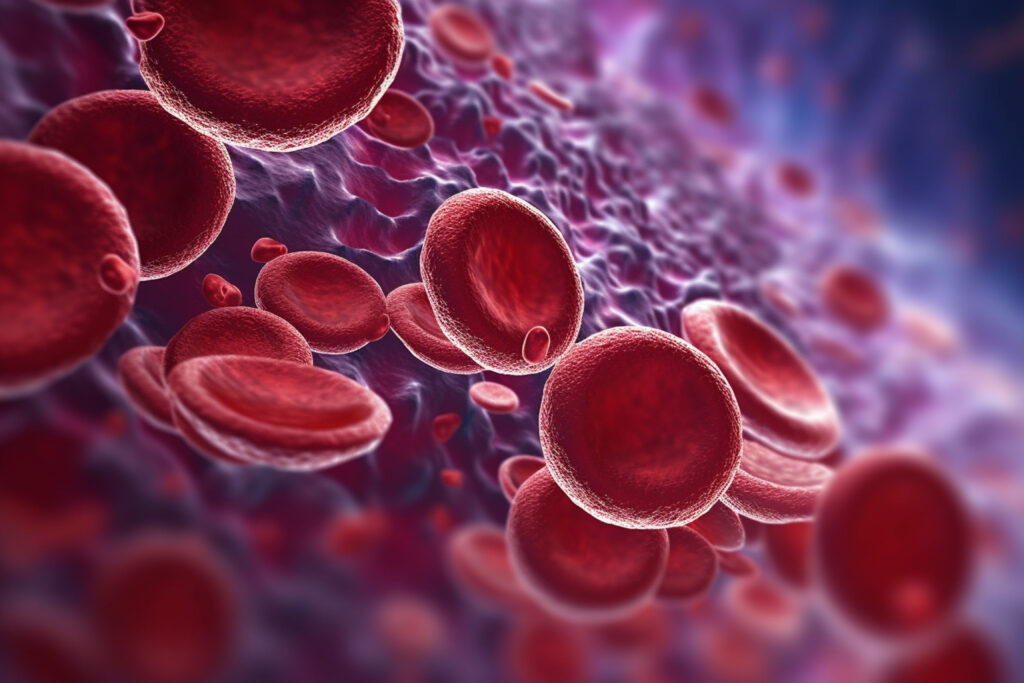On June 15, 2023, we announced the winners of the 2023 Promega iGEM grant. Sixty-five teams submitted applications prior to the deadline with projects ranging from creating a biosensor to detect water pollution to solving limitations for CAR-T therapy in solid tumors. The teams are asking tough questions and providing thoughtful answers as they work to tackle global problems with synthetic biology solutions. Unfortunately, we could only award nine grants. Below are summaries of the problems this year’s Promega grant winners are addressing.
UCSC iGEM

The UCSC iGEM team from the University of California–Santa Cruz is seeking a solution to mitigate the harmful algal blooms caused by Microcystis aeruginosa in Pinto Lake, which is located in the center of a disadvantaged community and is a water source for crop irrigation. By engineering an organism to produce microcystin degrading enzymes found in certain Sphingopyxis bacteria, the goal is to reduce microcystin toxin levels in the water. The project involves isolating the genes of interest, testing their efficacy in E. coli, evaluating enzyme production and product degradation, and ultimately transforming all three genes into a single organism. The approach of in-situ enzyme production offers a potential solution without introducing modified organisms into the environment, as the enzymes naturally degrade over time.
IISc-Bengaluru
Endometriosis is a condition that affects roughly 190 million (10%) women of reproductive age worldwide. Currently, there is no treatment for endometriosis except surgery and hormonal therapy, and both approaches have limitations. The IISc-Bengaluru team at the Indian Institute of Science, Bengaluru, India, received 2023 Promega iGEM grant support to investigate the inflammatory nature of endometriosis by targeting IL-8 (interleukin-8) a cytokine. Research by other groups has snow that targeting IL-8 can reduce endometriotic tissue. This team will be attempting to create an mRNA vaccine to introduce mRNA for antibody against IL-8 into affected tissue. The team is devising a new delivery mechanism using aptides to maximize the delivery of the vaccine to the affected tissues.
Bac2Glow
The current state of diagnostics is insufficient, leading to numerous issues such as the administration of treatments without accurate initial diagnoses. This practice not only results in unnecessary harm, untargeted therapies, and unwanted side effects but also contributes to the rise of antimicrobial resistance. For instance, urinary tract infections in the UK are often treated with antibiotics without tests, causing unnecessary harm. To improve diagnostics, the Bac2Glow team from Oxford University in the UK aims to use deep learning to design programmable minibinders that target common pathogens. These proteins will be tested using a universal modular biosensor and a novel system employing self-aggregating nanoparticles. The goal is to enhance treatment effectiveness, differentiate between conditions, and strengthen pandemic preparedness.
Unfamiliar with iGEM?
The iGEM competition is an international event in which teams of undergraduate students from around the world design and build biological systems using synthetic biology. It encourages innovative thinking and collaboration by providing students with the opportunity to tackle real-world challenges in areas such as healthcare, energy, and environment. Participants learn and apply cutting-edge techniques to create novel solutions that have the potential to make a positive impact on society. Check out the resources Promega has to support iGEM teams or read more blogs about iGEM from teams we have sponsored in previous years.
UBC-Vancouver
This project proposed by 2023 Promega iGEM Grant winner UBC-Vancouver addresses the challenges associated with the production of therapeutic proteins. While protein-based therapeutics have shown success, their large-scale production requires significant infrastructure and investment. Moreover, cytotoxicity and deleterious effects limit the high-throughput investigation of novel proteins. To overcome these limitations, the UBC iGEM team proposes the use of cell-free protein synthesis (CFPS), a method that allows cell-independent protein synthesis. The team aims to develop a high-efficiency CFPS system using Vibrio natriegens (VN) as a chassis. The VN bacterium offers advantages such as high salt tolerance, reduced sterility requirements, and faster doubling time. The project also aims to improve energy efficiency by incorporating oxidative phosphorylation and renewable energy sources. Additionally, protein purification efficiency will be enhanced using self-cleaving intein fused affinity tags. The team’s goal is to demonstrate the production and isolation of IL-10 and other expensive therapeutically relevant cytokines, thereby improving accessibility for researchers in various fields.
Washington iGEM
The Washington iGEM team out of the University of Washington, Seattle, WA, seeks address the environmental and health risks posed by polychlorinated biphenyls (PCBs), which are persistent organic pollutants found in large quantities worldwide. PCBs are highly toxic and have been linked to cancer and hormone disruption. Washington state has several PCB-related Superfund sites, including areas important for salmon fishing by tribal nations. The project proposes modifying cyanobacteria biofilms, commonly found in wastewater, to metabolize PCBs. Cyanobacteria biofilms are already used in wastewater treatment plants, making the integration of this solution feasible. To improve the efficiency of PCB degradation, dechlorination is required, which is challenging in aerobic environments. The researchers plan to modify an aerobic reductive dehalogenase to create a stable and versatile dehalogenase targeting a wider range of PCB congeners. Additionally, the project aims to incorporate granulated activated carbon into the filter to attract and facilitate the uptake of PCBs present at smaller concentrations in wastewater. The objective is to develop a more effective and scalable solution to remove and degrade PCBs, mitigating their harmful effects on the environment and human health.
TechMonterreyGDL
This research project focuses on addressing the pollution of water bodies in Jalisco, Mexico, which has a significant impact on the entire population, particularly marginalized communities that rely on untreated water. The study highlights the issue of emerging contaminants, including pharmaceutical compounds that do not fully biodegrade in the human body and subsequently pollute water sources. Limited research exists in Mexico regarding the presence of chemical pollutants and their environmental risks. Currently available techniques for detecting emerging pollutants, such as chromatography and extraction methods, are expensive and time-consuming, making them inaccessible to marginalized communities. To overcome these challenges, the TechMonterreyGDL iGEM team from Tecnologico de Monterrey in Zapopan, Mexico, is working to develop a portable biosensor that can easily detect and quantify emerging contaminants in water samples. The biosensor will be designed with a focus on accessibility and user-friendliness. The team has sought guidance from the entrepreneurship department of their university to enhance the project’s entrepreneurial potential and make a meaningful impact in addressing the complex problem of water pollution.
iGEM Tübingen

Shortages of blood supply continues to be an issue in the medical sector. Currently, not everyone is eligible to donate blood due to various factors such as age, certain illnesses, infections, or abnormal blood pressure. Converting blood antigen B to the universal blood donor antigen 0, would provide a larger supply of universal blood that can be used for all blood types would become available. The iGEM Tübingen team approach involves converting blood antigen B halfway into blood antigen A, as the conversion of blood antigen A to blood antigen 0 is already undergoing clinical trials. This intermediate step requires two sequential modifications performed by the same enzyme. Specifically, the terminal galactose in blood antigen B needs to be modified to a terminal galactosamine, which will be achieved through the action of a dehydrogenase, creating a ketone, and a deaminase, converting the ketone group to an amine group. The researchers have begun their search for enzymes capable of carrying out these specific antigen modifications and have identified their initial candidate using bioinformatical testing.
HKU-HongKong iGEM Team
This research project aims to address the limitations of CAR-T cell therapy in treating solid tumors. While CAR-T therapy has been successful against blood cancers, it has been ineffective against solid tumors due to challenges posed by the tumor microenvironment (TME). The TME includes various components, such as tumor-associated macrophages (TAMs), which hinder the penetration of CAR-T cells and promote tumor growth and immunosuppression. To overcome these obstacles, the HKU-HongKong team proposes genetically engineering macrophages using Sendai virus and nanoparticles. These engineered macrophages will possess chimeric antigen receptors (CAR) combined with a SIRPα blocker, enhancing their anti-cancer properties and potentially enabling effective treatment of solid tumors.
iGEM Stony-Brook
The overuse of synthetic fertilizers has detrimental effects on human health, the environment, and the economy. The inefficient application of these fertilizers leads to nitrogen runoff, which causes acid rain and eutrophication in freshwater sources, harming aquatic life. Moreover, synthetic fertilizers can damage soil by promoting heavy metal accumulation and reducing biomass production. In light of the increasing global population, alternative solutions are needed. iGEM Stony-Brook proposes engineering a nitrogen-fixing organism that can provide a high output of ammonia while minimizing energy requirements. They plan to modify a gene oscillator, originally designed by Stricker et al. in 2008, by incorporating the nitrogenase gene cluster into the genetic clock design. This modified organism, likely E. coli or P. protogens, could serve as a biofertilizer, delivering timed and controlled levels of ammonia to fix inert nitrogen gas. The researchers will also develop predictive oscillation models in MATLAB to optimize the practicality and feasibility of the oscillation cycles. Ultimately, the development of a nitrogenase gene oscillator could help reduce the reliance on nitrogen fertilizers, mitigating nitrogen runoff while providing sufficient ammonia for crop growth.
Are you an iGEMer looking for technical resources and information? Check out the Promega iGEM Resource page!
Congratulations to the 2023 Promega iGEM Grant Winners
These 2023 Promega iGEM grant awardees have shrunk from no challenge, and are showing the promise that synthetic biology holds for solving significant problems around the world—from issues of human health to environmental challenges. We wish them, and all of the other iGEM teams, success in their endeavors and look forward to hearing what their 2023 work has yielded at the Jamboree this fall I Paris.
Michele Arduengo
Latest posts by Michele Arduengo (see all)
- The Casual Catalyst: Science Conversations and Cafes - July 18, 2024
- Cancer Moonshot: Solving Tough Problems - May 28, 2024
- Automated Sampling and Detection of ToBRFV: An Emerging Tomato Virus - April 25, 2024
